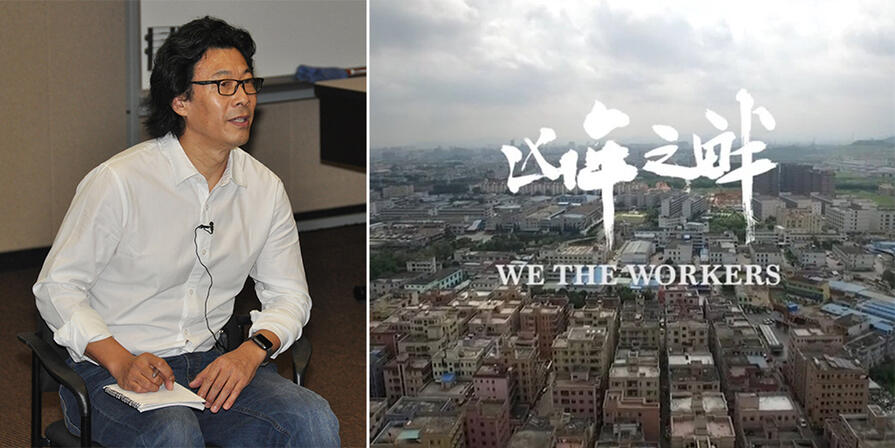About Han Dongfang 韩东方
Han Dongfang, then a twenty-six year-old railway worker, became involved in China's pro-democracy movement on April 15, 1989, the day Hu Yaobang died. But it was not until May 20, when he joined the Beijing Workers Autonomous Federation (BWAF 北京工人自治联合会) one day after it was formed, that he found his niche. The BWAF, the first independent union since the founding of the People’s Republic of China in 1949, grew to some 200 members before it was banned on June 4. Han’s emergence as its leader earned him the top spot on the list of wanted worker leaders.
This video is also available on the USCI YouTube Channel.
About the Film
Shot over a six-year period (2009-2015) in the industrial heartland of south China, a major hub in the global supply chain, We the Workers follows labor activists as they find common ground with workers, helping them negotiate with local officials and factory owners over wages and working conditions. Threats, attacks, detention and boredom become part of their daily lives as they struggle to strengthen worker solidarity in the face of threats and pressures from the police and their employers. In the process, we see in their words and actions the emergence of a nascent working class consciousness and labor movement in China. The film was part of the 2017 International Film Festival Rotterdam and other festivals. The film was directed by Huang Wenhai 黄文海 and produced by Zeng Jinyan 曾金燕;。The screening will be followed a Q&A with Han Dongfang, founder and director of the China Labour Bulletin.




